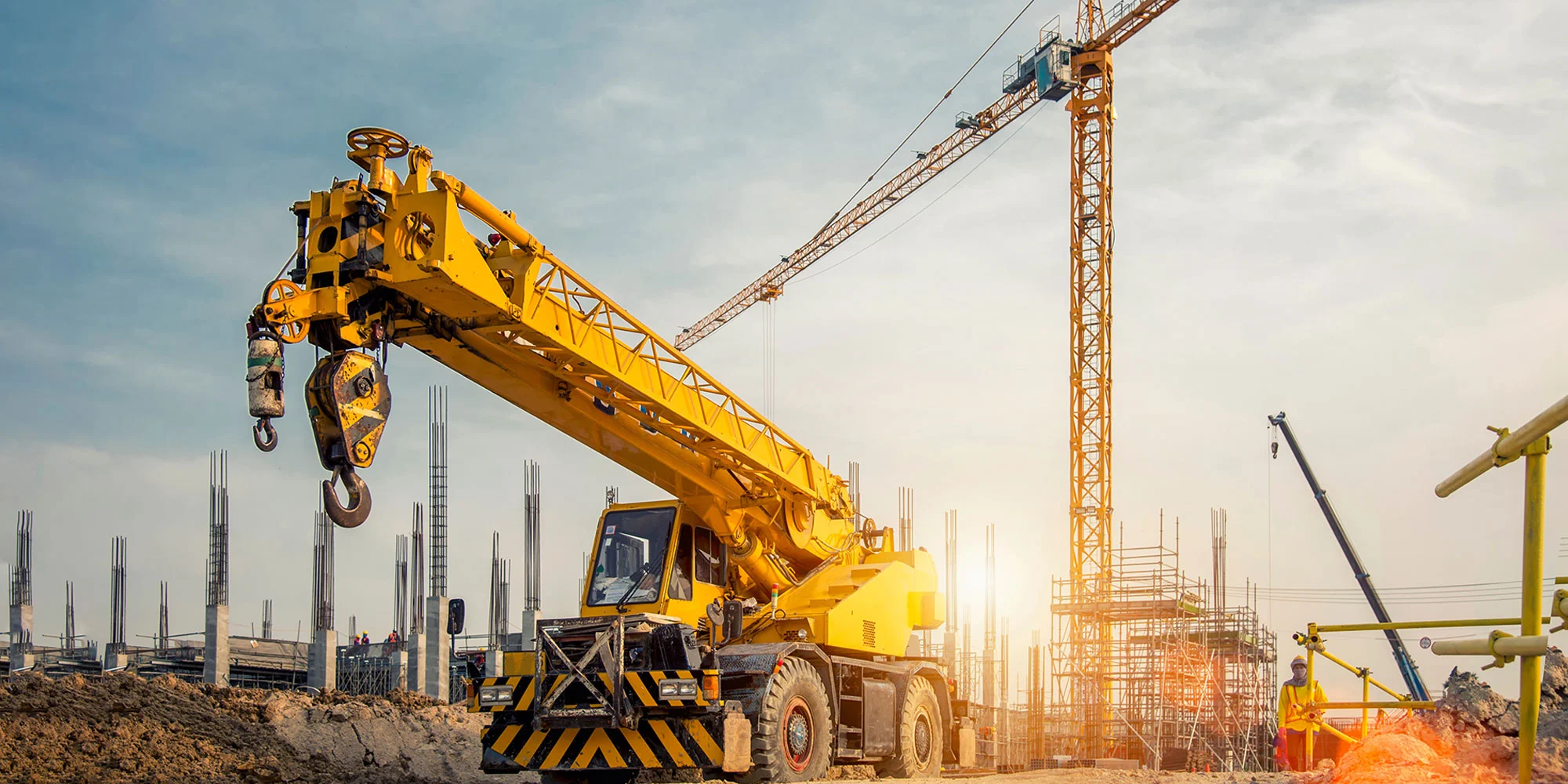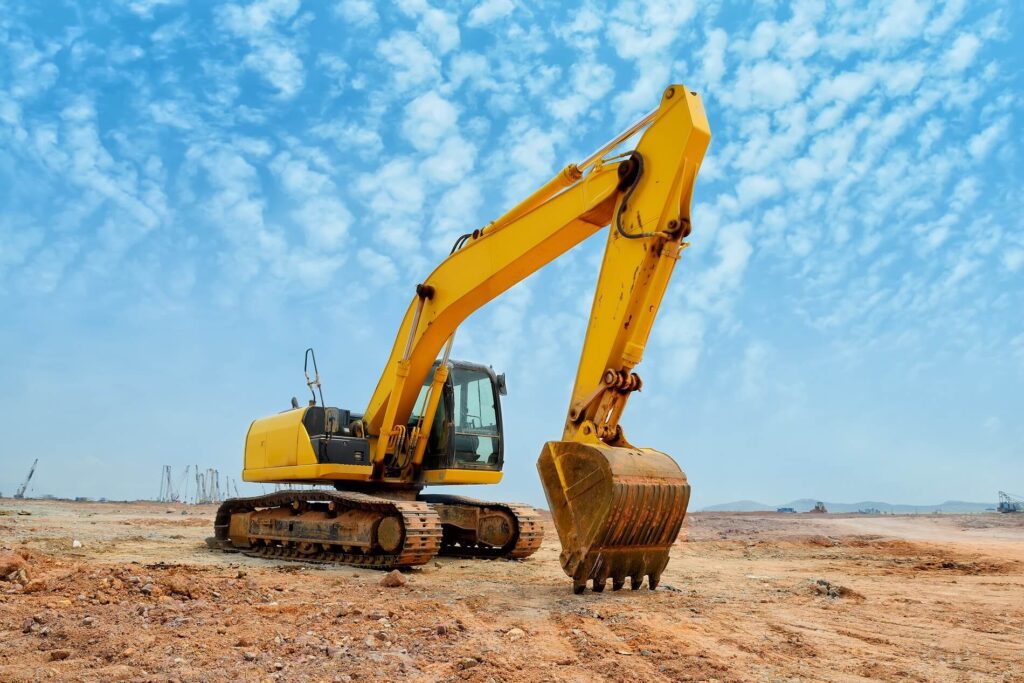Construction Equipment Rentals in Tuscaloosa AL: Every Little Thing You Required for Your Task Website
Construction Equipment Rentals in Tuscaloosa AL: Every Little Thing You Required for Your Task Website
Blog Article
Exploring the Financial Conveniences of Renting Building Equipment Compared to Owning It Long-Term
The choice between leasing and possessing building and construction equipment is critical for economic management in the market. Renting out offers instant cost financial savings and functional versatility, allowing companies to designate sources more efficiently. On the other hand, ownership comes with considerable lasting financial commitments, including maintenance and depreciation. As contractors evaluate these choices, the effect on capital, task timelines, and modern technology gain access to becomes increasingly significant. Understanding these nuances is necessary, especially when considering how they line up with certain job requirements and economic approaches. What elements should be prioritized to ensure optimal decision-making in this complex landscape?

Cost Comparison: Leasing Vs. Owning
When evaluating the financial effects of having versus leasing building devices, an extensive price contrast is important for making educated choices. The choice in between leasing and having can considerably impact a business's profits, and recognizing the linked prices is vital.
Leasing building and construction tools normally involves reduced upfront costs, permitting companies to allocate funding to other operational demands. Rental contracts frequently consist of versatile terms, allowing business to access advanced equipment without long-lasting dedications. This versatility can be specifically beneficial for temporary jobs or fluctuating work. Nevertheless, rental expenses can accumulate gradually, possibly surpassing the cost of possession if equipment is needed for an extensive period.
Conversely, owning construction devices needs a substantial preliminary financial investment, in addition to ongoing prices such as funding, devaluation, and insurance policy. While possession can bring about lasting savings, it likewise locks up capital and may not provide the exact same degree of adaptability as leasing. In addition, possessing tools demands a dedication to its application, which might not always align with project demands.
Ultimately, the choice to rent out or own must be based upon a comprehensive analysis of details task needs, monetary capacity, and long-lasting critical goals.

Maintenance Expenditures and Obligations
The choice in between possessing and renting building and construction devices not just involves monetary factors to consider but additionally encompasses continuous upkeep expenses and duties. Possessing devices needs a substantial commitment to its upkeep, that includes regular assessments, repair services, and potential upgrades. These duties can quickly build up, leading to unforeseen prices that can stress a budget plan.
On the other hand, when renting out tools, upkeep is generally the duty of the rental business. This setup enables professionals to avoid the financial burden linked with deterioration, along with the logistical difficulties of scheduling repair services. Rental agreements often consist of provisions for upkeep, implying that contractors can concentrate on completing jobs rather than stressing over equipment problem.
Moreover, the varied variety of devices readily available for rent makes it possible for business to pick the current versions with advanced innovation, which can enhance effectiveness and performance - scissor lift rental in Tuscaloosa Al. By going with services, businesses can prevent the long-lasting obligation of tools devaluation and the associated maintenance frustrations. Ultimately, assessing upkeep expenses and obligations is vital for making an informed choice concerning whether to possess or rent building tools, substantially influencing overall job excavation equipment rental near me prices and functional efficiency

Devaluation Influence On Ownership

A considerable variable to take into consideration in the choice to have building equipment is the influence of devaluation on overall ownership costs. Depreciation represents the decrease in worth of the tools over time, affected by elements such as use, damage, and advancements in innovation. As devices ages, its market price reduces, which can dramatically affect the owner's financial position when it comes time to trade the devices or offer.
For construction firms, this devaluation can equate to substantial losses if the tools is not utilized to its fullest possibility or if it lapses. Proprietors need to account for devaluation in their monetary projections, which can bring about higher overall expenses compared to renting. In addition, the tax implications of devaluation can be complex; while it might supply some tax advantages, these are commonly offset by the reality of reduced resale worth.
Ultimately, the worry of depreciation emphasizes the relevance of comprehending the lasting monetary dedication associated with owning building and construction equipment. Firms need to carefully evaluate exactly how frequently they will certainly utilize the tools and the prospective economic effect of devaluation to make an educated decision concerning possession versus leasing.
Financial Flexibility of Leasing
Renting building and construction tools uses considerable economic versatility, permitting companies to designate sources extra efficiently. This adaptability is especially critical in an industry defined by varying job needs and differing work. By deciding to rent, companies can prevent the significant resources outlay required for buying equipment, protecting capital for other operational needs.
Furthermore, leasing tools enables companies to tailor their equipment choices to details project requirements without the long-term commitment connected with ownership. This indicates that organizations can easily scale their equipment inventory up or down based on present and expected job requirements. Subsequently, this adaptability lowers the threat of over-investment in equipment that might come to be underutilized or obsolete gradually.
One more financial benefit of renting out is the possibility for tax obligation advantages. Rental repayments are usually considered general expenses, enabling immediate tax deductions, unlike visite site depreciation on owned devices, which is spread over several years. scissor lift rental in Tuscaloosa Al. This immediate expenditure acknowledgment can additionally enhance a company's cash money setting
Long-Term Project Factors To Consider
When assessing the long-term requirements of a construction business, the choice between possessing and renting devices comes to be more complex. For jobs with prolonged timelines, acquiring tools might seem useful due to the possibility for reduced overall costs.
The building and construction sector is advancing quickly, with new devices offering improved effectiveness and security functions. This versatility is especially useful for services that manage varied jobs needing different types of equipment.
Furthermore, monetary stability plays an essential role. Possessing tools often entails substantial resources financial investment and devaluation concerns, while renting permits for more predictable budgeting and capital. Ultimately, the choice in between owning and renting needs to be lined up with the tactical objectives of the construction service, considering both expected and go to this web-site existing project needs.
Conclusion
In final thought, renting out building and construction equipment supplies substantial monetary benefits over long-term possession. The decreased in advance prices, elimination of maintenance duties, and evasion of depreciation add to improved capital and monetary adaptability. scissor lift rental in Tuscaloosa Al. Additionally, rental repayments offer as immediate tax reductions, even more profiting professionals. Inevitably, the choice to lease instead of very own aligns with the vibrant nature of construction projects, permitting versatility and accessibility to the newest tools without the financial worries connected with ownership.
As equipment ages, its market worth lessens, which can significantly influence the owner's economic placement when it comes time to trade the devices or offer.
Renting construction tools supplies substantial monetary flexibility, allowing firms to allocate resources extra effectively.In addition, renting out devices enables firms to customize their equipment selections to details job demands without the long-term dedication connected with ownership.In verdict, renting out building equipment supplies substantial economic advantages over long-term ownership. Eventually, the decision to rent out rather than very own aligns with the dynamic nature of building and construction jobs, allowing for versatility and accessibility to the latest equipment without the economic problems linked with possession.
Report this page